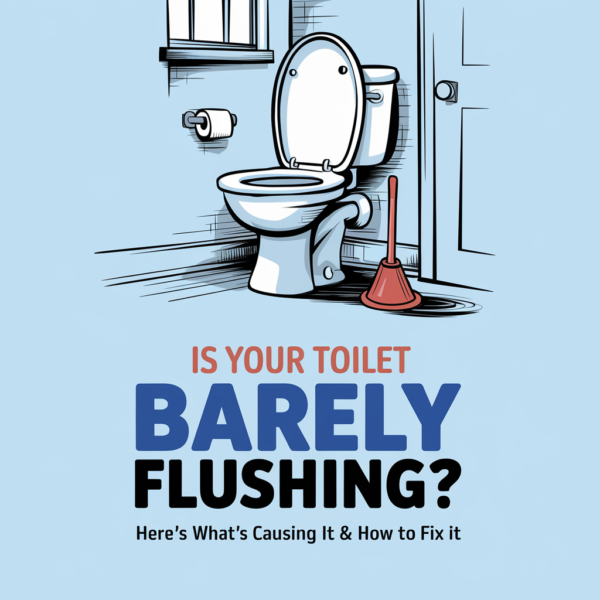
What Causes a Rotten Egg Smell in Your House?
The first time I caught a whiff of that nasty rotten egg smell in my house, I seriously thought something had crawled under the floorboards and died. Turns out, it’s way more common than you might think—and it’s not always something gross like a dead animal. Most of the time, that awful stench is caused by hydrogen sulfide gas.
Hydrogen sulfide can sneak into your home through a few different routes:
- Plumbing Issues: If you’ve got a dried-out drain trap (you know, that little U-shaped pipe under sinks and tubs), sewer gases can slip right into your house.
- Water Contamination: Sometimes the water itself is the problem, especially if you’re on a well. Bacteria reacting with magnesium or aluminum rods in your water heater can create that unmistakable sulfur smell.
- Sewer System Problems: If your sewer line is cracked or blocked, that gas has nowhere to go… except back into your home.
- Bacteria in Plumbing: Bacteria can grow inside pipes and drains, and when they break down organic material, they release that rotten egg odor.
When I dealt with this in my own home, it turned out to be a dried-out floor drain in the basement I didn’t even realize existed. A quick splash of water into the trap solved that specific issue—but it’s not always that easy, depending on what’s causing it.
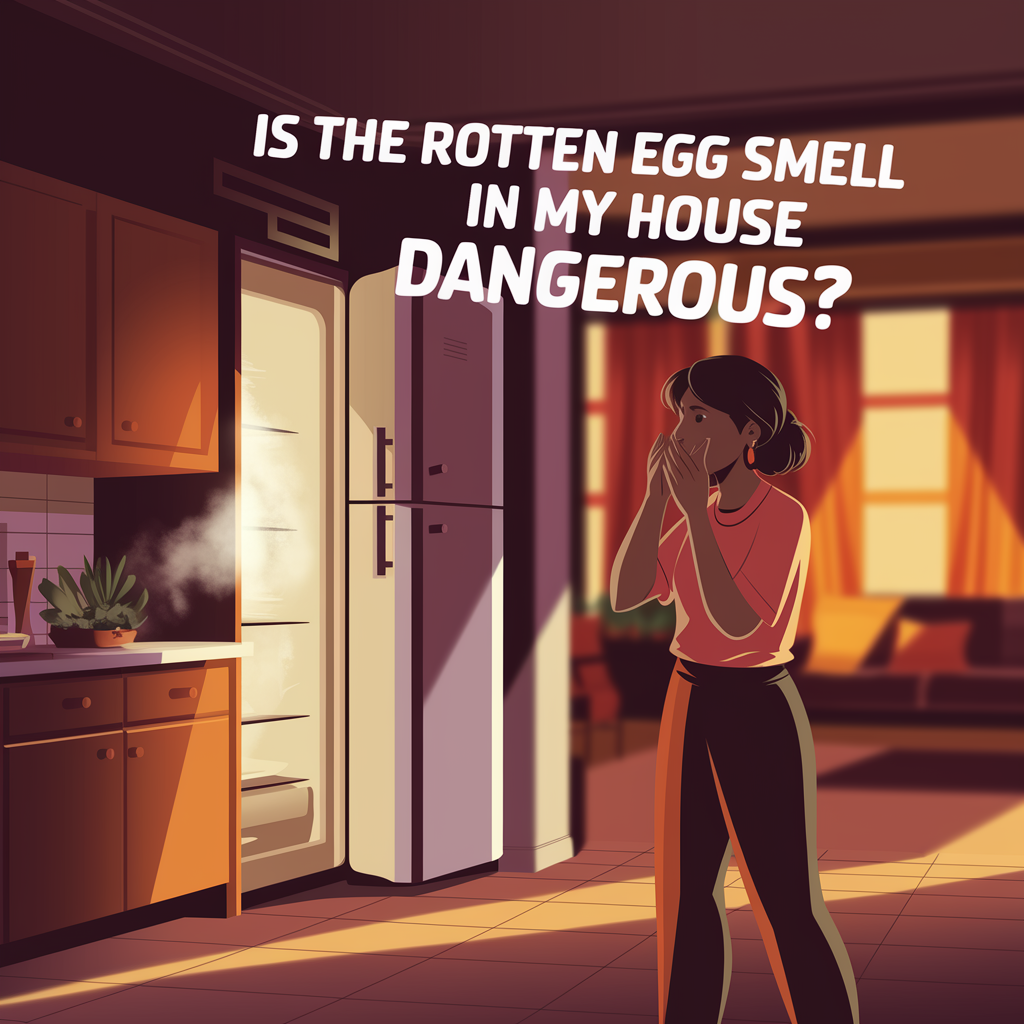
Is the Rotten Egg Smell in My House Dangerous?
This was my big worry the first time I noticed it: is this just a nasty smell, or am I breathing something dangerous?
The short answer? It can be both.
If the smell is faint and isolated—like around a single drain or water source—then it’s probably harmless bacteria doing their thing. Annoying, yes. Deadly, no.
But if the smell is strong throughout the house, you should stop what you’re doing and pay attention. A strong sulfur smell everywhere could mean:
- A gas leak. Natural gas itself doesn’t smell, but gas companies add a rotten egg odor (mercaptan) so you can detect a leak quickly.
- A broken sewer line. This can lead to more than just bad smells—it can release harmful pathogens into your home’s air.
When in doubt, treat strong widespread smells seriously. Open windows, get outside, and call your gas company or a plumber if you can’t track it down. Trust me, it’s better to look paranoid than to miss something dangerous.
(And if you want a solid start on regular home maintenance, it’s worth checking out these essential home maintenance tips for new homeowners even if you’ve lived in your house for years.)
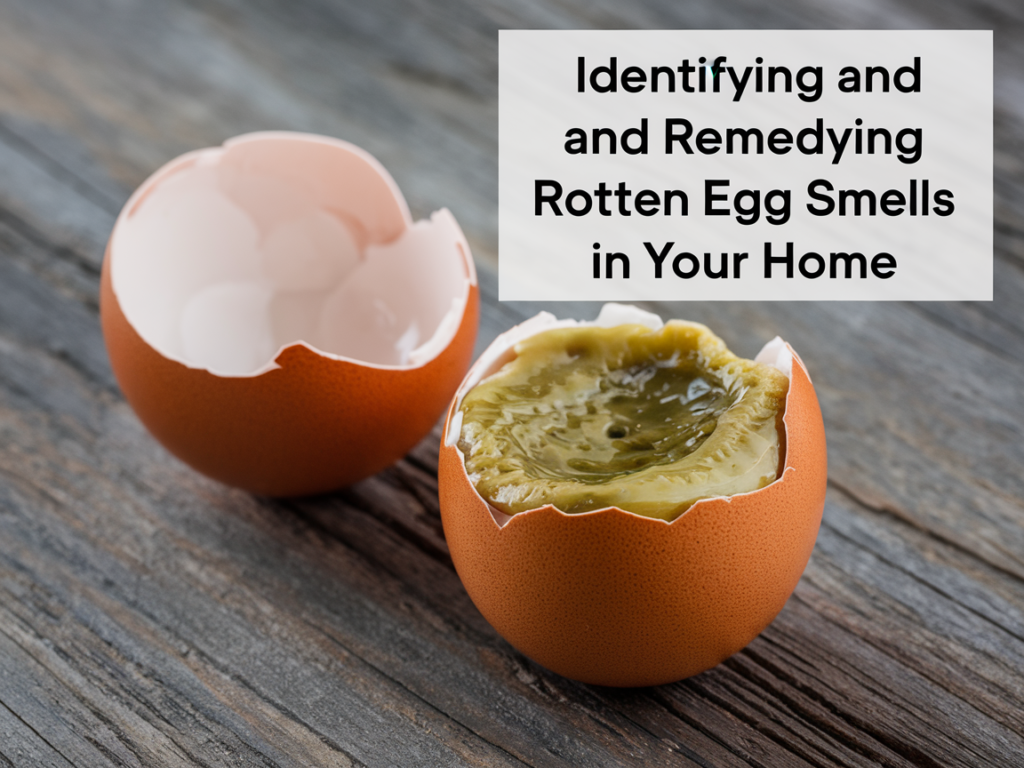
Why Does My House Smell Like Rotten Eggs After It Rains?
One of the weirdest things I noticed when I first battled the rotten egg smell was that it seemed worse after a big rainstorm. Turns out, there’s a real reason for that.
When it rains a lot, the pressure in the ground shifts and your sewer system can get overwhelmed. If your home has older plumbing or not-so-great venting, sewer gases can sneak back into the house through drains that aren’t properly sealed or used very often.
Sometimes it’s as simple as a dry floor drain in a basement or utility room that needs a little water poured into it to seal off the smell. Other times, it points to bigger problems like a blocked or cracked sewer vent on your roof.

Another thing heavy rain can do is push groundwater contaminants toward your water supply if you have a private well. That can make even your tap water start smelling a little funky.
If you notice the smell gets worse after rain, you’re not imagining things. It’s a good sign to start checking your floor drains, sump pump, and vent pipes. (And if your house isn’t draining like it should or you’ve seen water backup issues, it might be time to think about bigger fixes like installing underground electric or drainage improvements while you’re at it.)
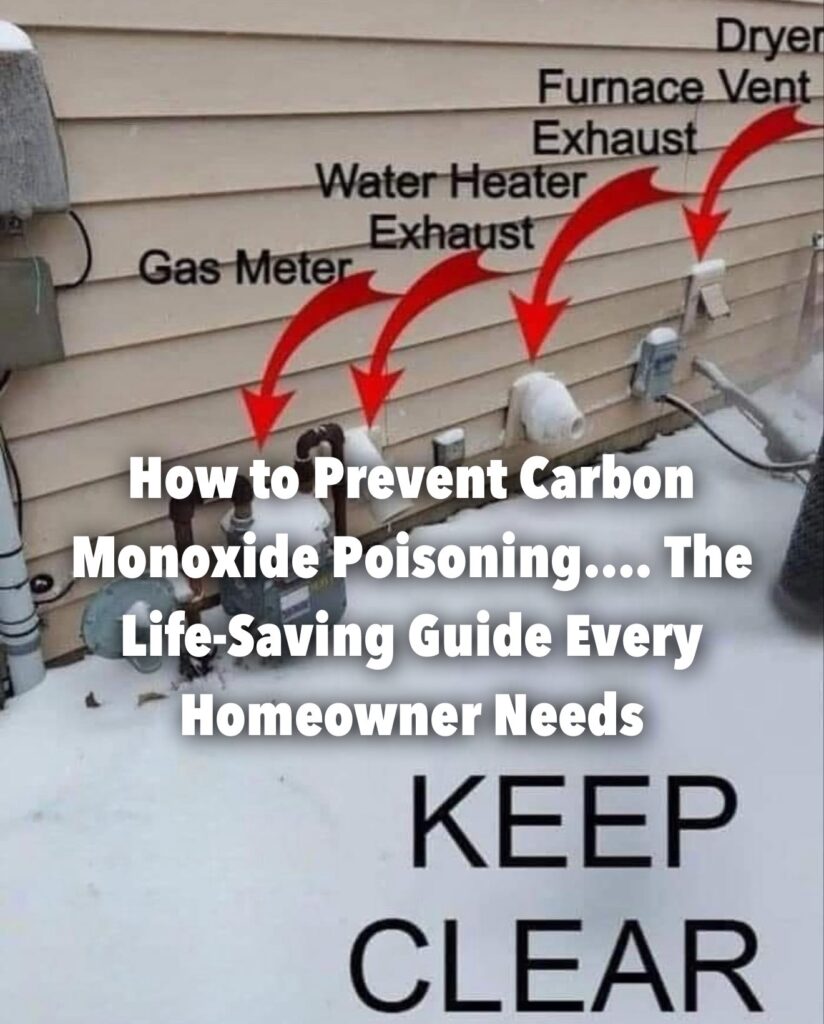
Could My Water Heater Be Causing the Rotten Egg Smell?
I would’ve never guessed it, but when my neighbor mentioned it, the lightbulb went off: sometimes your water heater is the real culprit behind that rotten egg smell.
Inside most traditional water heaters, there’s a little thing called an anode rod. It’s a metal rod designed to prevent your tank from rusting by sacrificing itself over time (hence the name “sacrificial” anode rod).
Here’s the catch: if bacteria get into your water system—and it’s way more common with private wells—they can react with the magnesium or aluminum in the rod and create hydrogen sulfide gas.
Boom. Rotten eggs every time you turn on the hot water.
Some quick signs your water heater might be to blame:
- The smell is only noticeable when you run hot water.
- It fades when you only run the cold tap.
- You have an older water heater or well water system.
One easy thing I did was flush the tank and sanitize it, but eventually I had to replace the anode rod with a powered anode rod, which doesn’t create the chemical reaction that causes the smell.
If your hot water smells funky, don’t ignore it. It’s usually a sign that it’s time for some simple maintenance or maybe a fresh anode rod. (You can also brush up on the basics of choosing and troubleshooting the right water heater if you’re thinking about replacing an old one.)

Why Does the Bathroom Smell Like Rotten Eggs?
Nothing ruins a nice hot shower like stepping out into a bathroom that smells like you’re living over a sewer. Been there, and it’s not exactly the “spa-like vibe” we all hope for.
In my experience, when the rotten egg smell is isolated to the bathroom, it usually comes down to one of these troublemakers:
1. Dry P-Trap
If you have a sink, shower, tub, or floor drain you don’t use very often, the water in the P-trap can evaporate. Without that water barrier, sewer gases have a straight shot right into your house.
Quick fix:
Pour a few cups of water down the drain. If you really want to seal it up long-term, add a tablespoon of vegetable oil on top to slow down evaporation.
2. Bacteria Build-Up
Organic gunk can build up in your sink overflow hole, drains, and even in the pipe walls. Bacteria love that stuff—and when they break it down, you get a free front-row seat to the rotten egg concert.
Quick fix:
Flush your drains with a mixture of hot water, baking soda, and vinegar. It won’t hurt to snake the drains either if you suspect buildup deeper down.
3. Sewer Vent Blockage
Your plumbing system has vent pipes that release sewer gases outside. If one gets clogged (think leaves, bird nests, or even ice in winter), it can force the gases to bubble back into the house through the weakest link—often a bathroom drain.
Quick fix:
If you’re comfortable with heights and a garden hose, you can try flushing the vent from the roof. Otherwise, a plumber can check it for blockages.
(If you’re getting serious plumbing vibes from the smell, it might be worth brushing up with some DIY plumbing repair basics before it gets worse.)

How to Get Rid of Rotten Egg Smell in the House
Now for the good stuff—how to actually get rid of that horrible smell without feeling like you’re living in a dumpster fire.
Here’s what worked for me (and what most pros recommend):
1. Identify the Source First
You can’t fix what you haven’t found. Start by figuring out if the smell is:
- Only around one drain (likely a trap or local blockage)
- Throughout the whole house (could be sewer line issues or a gas leak)
- Only when running hot water (probably the water heater)
2. Flush All Drains
Even the ones you don’t use. Run hot water for a few minutes, then pour a baking soda and vinegar mixture down each drain.
Bonus tip: After flushing, pour a little vegetable oil in floor drains to keep traps from drying out again.
3. Sanitize the Water Heater
If the hot water smells bad, you’ll want to flush and disinfect your water heater. In some cases, replacing the anode rod can permanently fix the problem.
4. Inspect the Sewer Vents
Clogged vents are a sneaky cause of sulfur smells. A hose flush might clear them, or you may need a professional if it’s badly blocked.
5. Call for Backup If Needed
If the smell is strong everywhere or if you suspect a gas leak, it’s time to call in the pros.
Your safety isn’t something to DIY when you’re dealing with gas.
(And don’t forget—simple proactive maintenance projects like easy DIY home tricks for homeowners can save you a world of headaches later.)

Should I Call a Plumber for Rotten Egg Smell in the House?
Honestly, this is where I had to swallow my DIY pride a little bit.
I’m all for fixing stuff myself, but when it comes to certain smells—especially ones that could mean a gas leak or sewer problem—you gotta know when to call in a pro.
Here’s how I break it down:
When You Can DIY It:
- It’s only happening at one drain.
Probably a dried-out trap or some mild bacteria buildup.
(Flushing the drain and using simple cleaners should do the trick.) - It’s just when running hot water.
Usually a water heater issue, and flushing the tank or replacing the anode rod can usually fix it yourself. - It fades quickly after running water.
Minor, not a major hazard—keep an eye on it but no emergency.
When to Call a Plumber (Or Gas Company) Fast:
- The smell is strong everywhere.
You could be dealing with a natural gas leak or a serious sewer backup. - You hear gurgling in your drains or toilets.
This usually means blocked vent stacks or bigger sewer problems. - You can’t find the source.
When you’re running around the house like a bloodhound and can’t figure it out, it’s worth the peace of mind to call someone who can.
I once tried to chase down a stubborn smell for days before giving up and calling a plumber. Turns out, a cracked drain pipe inside the wall was leaking sewer gas… not something I would’ve ever found without cutting into drywall.
Sometimes saving money means knowing when to hand it off, trust me.
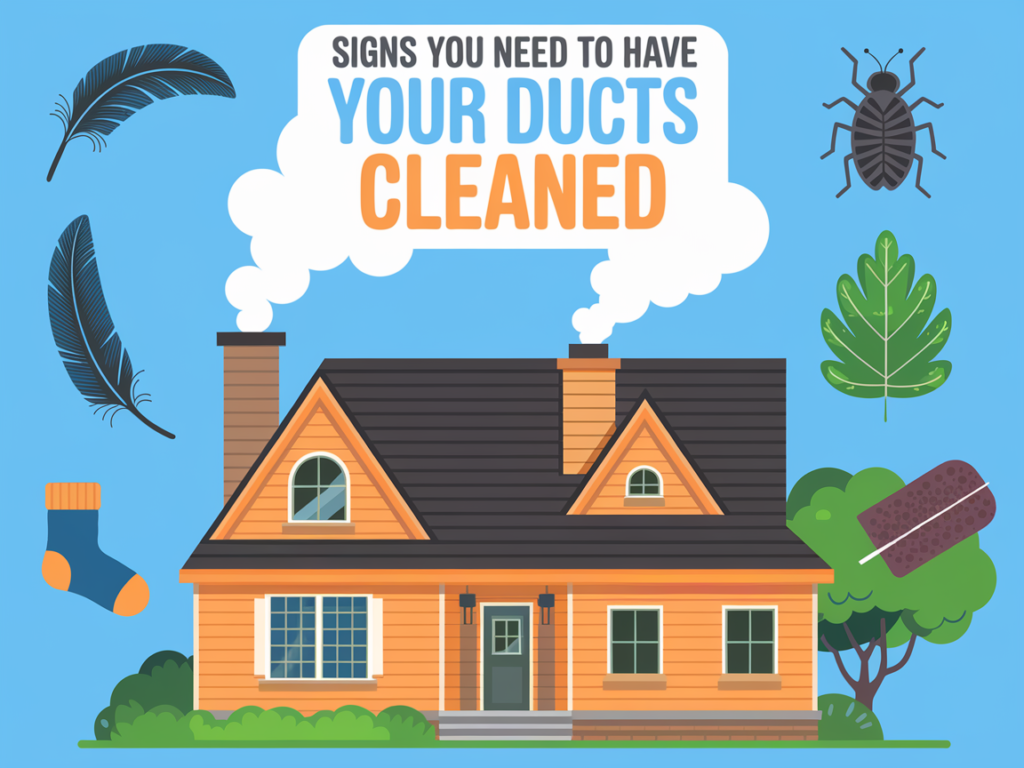
Can Rotten Egg Smells Come From HVAC Systems?
This one threw me for a loop because you don’t really think about smells and your air conditioner going hand in hand—but yep, they’re connected.
If your HVAC system starts spreading that rotten egg smell around, here are the most likely reasons:
1. Clogged Condensate Drain Line
Over time, the drain line that carries away moisture can get clogged up with algae, mold, or nasty bacteria. And when it backs up? You guessed it—the smells start hitching a ride on your cool air.
Quick fix:
Use a wet/dry vacuum to suck out the clog from the outside drain line. I make it a habit now to flush mine every spring with a little vinegar and water.

2. Dirty Ductwork
If you’ve got dust, mold, or bacteria growing in your ducts, your HVAC is basically blowing funky smells into every room.
Quick fix:
Professional duct cleaning can make a huge difference. And honestly, even giving your intake vents and filters a good scrubbing can help a lot too.
(If you’re already dealing with AC troubles like weak cooling, I’d highly recommend checking out this DIY guide to troubleshooting your A/C to catch small problems before they turn into big expensive ones.)
3. Sewer Gas Leaking Into Return Air
In really bad cases, sewer gases can seep into your HVAC system through cracks in plumbing or vents, and your system just circulates it all around.
If your whole house smells and the HVAC seems to make it worse when it kicks on—get someone out to inspect ASAP.

Final Tips for Preventing Rotten Egg Smells at Home
After dealing with that rotten egg smell nightmare myself, I’ve learned that a little preventive care goes a long way in keeping my house fresh and healthy.
Here’s what I make sure to stay on top of now:
1. Keep Drains Wet
If you have a floor drain or a bathroom you barely use, pour water into the drains every couple of weeks. I also add a splash of vegetable oil—it floats on top and keeps the water from evaporating too fast.
2. Flush Your Water Heater
Every six months, I flush my water heater to clear out any sediment buildup and bacteria. It doesn’t just prevent smells—it also helps your heater last longer.
3. Inspect Vent Pipes
At least once a year (usually when I’m already cleaning gutters), I check that the plumbing vent stacks aren’t clogged up with leaves, bird nests, or whatever else nature decides to throw up there.
4. Regular HVAC Maintenance
I make it a point to change my HVAC filters regularly and flush the condensate drain line with a little vinegar. It’s simple and keeps a lot of hidden smells from becoming big problems.
5. Stay Alert to Changes
If your house suddenly smells off, especially after rain or when the AC kicks on, don’t brush it off. Trust your nose—it’s usually trying to tell you something.
Taking a few minutes here and there to stay ahead of small problems has saved me hundreds (maybe thousands) of dollars and a lot of headaches over the years.
(If you’re a fan of being proactive around the house like I am, you’ll probably appreciate these easy home maintenance projects that make life way smoother.)

Don’t Let a Rotten Egg Smell in House Catch You Off Guard
Dealing with a rotten egg smell in house can be annoying, gross, and even a little scary at times—but trust me, once you understand what causes it and how to fix it, it’s completely manageable.
Most of the time it’s something simple, like a dry trap or a funky water heater. Other times, it might be a little more serious, like a clogged vent or a sewer issue.
Either way, staying alert, doing a little troubleshooting, and knowing when to bring in a pro can save you a lot of stress (and a lot of air fresheners).
I learned the hard way that small smells can sometimes be big warnings—and now I stay way ahead of them.
The next time you get a whiff of that tell-tale stink, you’ll know exactly what to do—and you’ll be back to fresh, clean air in no time.

As an Amazon Associate we earn from qualifying purchases through some links in our articles.
